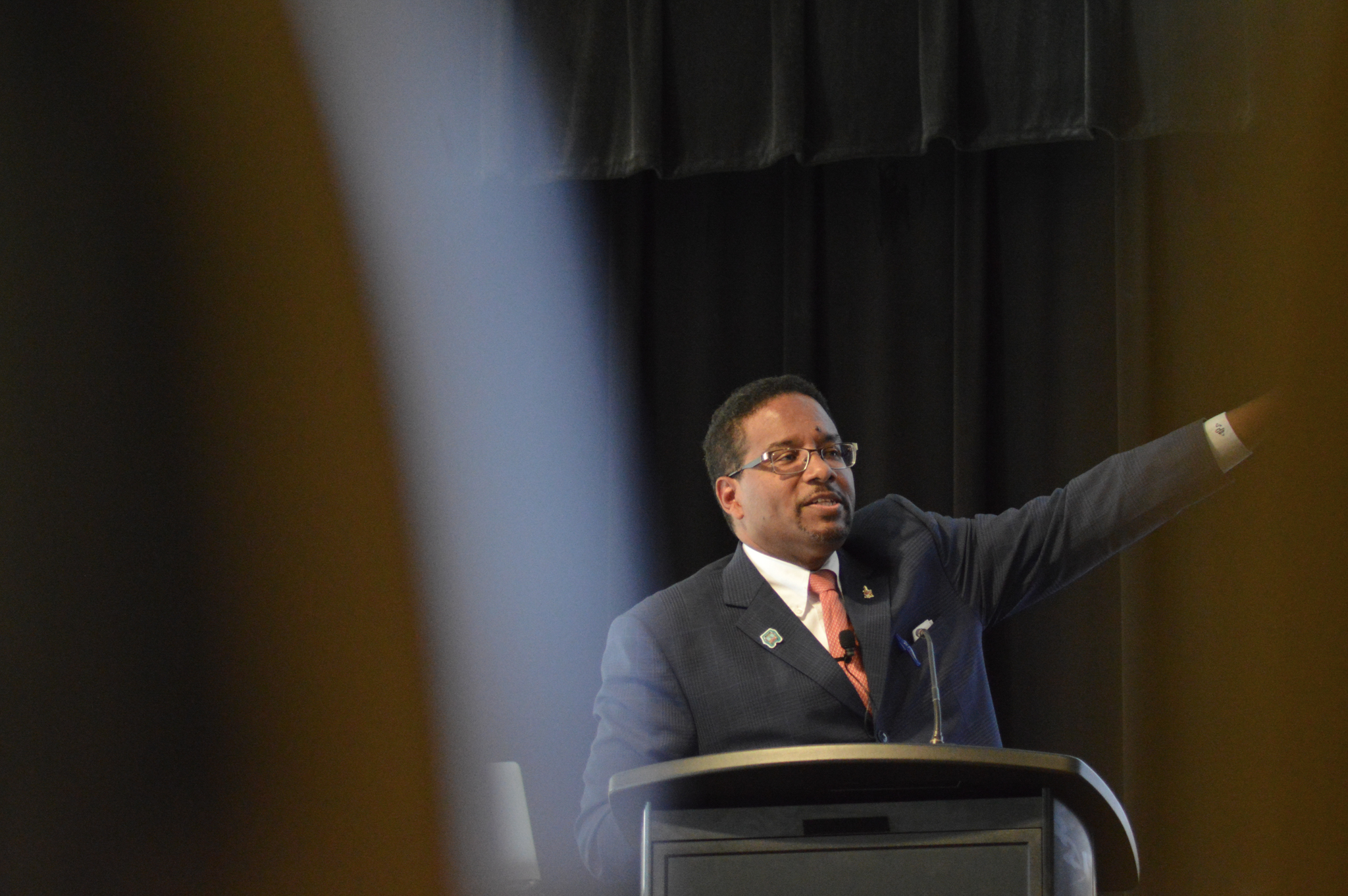University of Maryland President Darryll Pines announced a new presidential commission on artificial intelligence during his biannual State of the Campus Address at Tuesday’s University Senate meeting.
The “AI for Maryland” commission will examine how artificial intelligence can be harnessed in teaching and learning, student recruitment and enrollment and more. Pines appointed Axel Persaud, the assistant vice president of enterprise engineering in the information technology division, and Jennifer Golbeck, an information science professor, to lead the commission.
“We must be bold and practical and answer the question: How can our entire campus be a national model for leveraging the incredible potential of machine learning and artificial intelligence to make us better, smarter and more impactful going forward?” Pines said.
In addition to leading the commission, Golbeck will speak about artificial intelligence in this university’s homecoming address that will stream on YouTube on Oct. 9.
[UMD Graduate school dean discusses collective bargaining, food insecurity at GSG meeting]
“AI is sometimes presented as an oracle of truth,” Golbeck said in a video preview of her address shown at the meeting Tuesday. “Can you really trust AI? The answer is: it’s complicated.”
Pines also discussed developments in quantum computing at this university. In September, the university partnered with IonQ, a quantum computing company, to open the National Quantum Laboratory, or QLab.
A nearly $20 million investment from this university helped open the laboratory, which will bring together experts from around the world to research and utilize quantum computing.
“The QLab is a testament to our vision of bringing together partners in academia, private enterprise and the public sector for everyone’s benefit,” Pines said.
More innovation will occur at this university through the introduction of xFoundry this fall, Pines said. This program, which will operate through the IDEA Factory, will encourage students to be entrepreneurs and leaders by combining classroom experiences with a 15-month competition.
Competitors in xFoundry will work on a solution to a “grand challenge” problem, Pines said. The winner will receive a $250,000 to $2 million investment in their innovation.
[New diversity and inclusion assistant vice president emphasizes importance of student voice]
Pines also highlighted this university’s ranking as No. 46 in U.S. News’ 2024 national college rankings — the first time this university has ever ranked in the top 50 colleges.
“You can just see the trajectory,” he said. “I just want to emphasize that this is all because of everyone here.”
In fiscal year 2023, the university had a record-breaking year in research with $834 million in research awards — the highest total amount in research awards ever recorded at this campus, Pines said.
During Tuesday’s meeting, the senate also renamed the department, major and upper division certificate of African American Studies to African American and Africana Studies.
“The new name will more accurately reflect the content of the programs and the broader knowledge that students gain from the programs,” Wendy Stickle, the chair of the senate’s Programs, Curricula and Courses Committee, said in her presentation about the proposal to the senate.
The new names are consistent with other Big 10 institutions and are reflective of this university’s changing student demographics, Stickle said.



